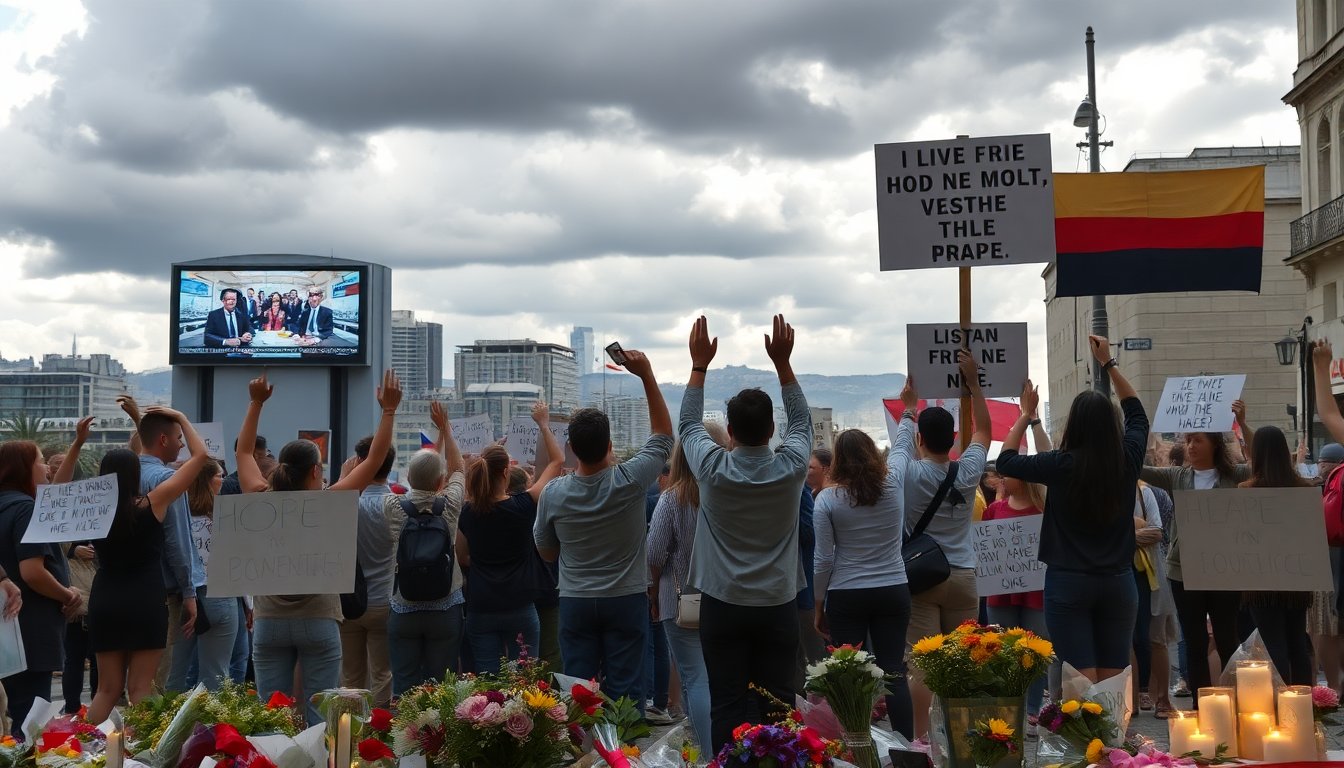Table of Contents
The international community has been closely monitoring escalating conflicts that are challenging diplomatic relations worldwide. The struggles in Gaza and the political turmoil in Venezuela are particularly impactful, shaping the future of numerous nations.
This article examines the ramifications of these crises, focusing on the implications for Palestinian resistance, the impact of violence in Gaza on U.S.-Israeli relations, and the ongoing political instability in France, among other critical issues.
Understanding the Palestinian resistance movements
The landscape of Palestinian resistance is increasingly complex. Various factions are vying for influence, raising questions about the future of these movements. Recent escalations have sparked renewed discussions about their strategies and goals.
Future strategies for resistance
Palestinian groups are adapting to a rapidly changing environment. The ongoing conflict raises concerns about the potential for another Nakba, or catastrophe, referring to the mass displacement of Palestinians in 1948. Despite these fears, there is a sense of resilience among the leadership, suggesting a shift toward more organized resistance efforts.
As these movements evolve, the potential for peaceful negotiations remains a topic of debate. While some factions advocate for armed resistance, others are pushing for diplomatic solutions. This internal conflict could determine the trajectory of the Palestinian cause in the coming years.
U.S.-Israeli relations amidst the Gaza crisis
The violence in Gaza has strained relations between the United States and Israel. Historically, the U.S. has been a staunch ally of Israel, providing military and financial support. However, the recent humanitarian crisis has led to increased scrutiny of this alliance.
Consequences of the Gaza conflict
The ongoing situation has prompted discussions within the U.S. about the ethical implications of supporting Israel amidst allegations of human rights violations. Public opinion is shifting, with a growing number of Americans advocating for a more balanced approach to the Israeli-Palestinian conflict.
These changes could lead to significant alterations in U.S. foreign policy, particularly if the humanitarian crisis escalates. It remains to be seen how this will impact U.S.-Israeli relations in the long term.
Political instability in Europe: the case of France
France is grappling with challenges that threaten its political stability. Recent protests and social unrest reflect deep-seated frustrations with government policies and the political elite.
Addressing France’s political crisis
As discontent among the populace rises, the government must find effective ways to address citizens’ concerns. Proposals for reforms are surfacing, but the effectiveness of these solutions remains questionable.
This article examines the ramifications of these crises, focusing on the implications for Palestinian resistance, the impact of violence in Gaza on U.S.-Israeli relations, and the ongoing political instability in France, among other critical issues.0
Looking ahead: Is peace a possibility?
This article examines the ramifications of these crises, focusing on the implications for Palestinian resistance, the impact of violence in Gaza on U.S.-Israeli relations, and the ongoing political instability in France, among other critical issues.1
This article examines the ramifications of these crises, focusing on the implications for Palestinian resistance, the impact of violence in Gaza on U.S.-Israeli relations, and the ongoing political instability in France, among other critical issues.2
This article examines the ramifications of these crises, focusing on the implications for Palestinian resistance, the impact of violence in Gaza on U.S.-Israeli relations, and the ongoing political instability in France, among other critical issues.3


